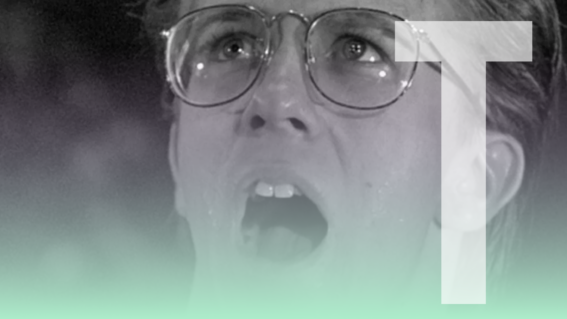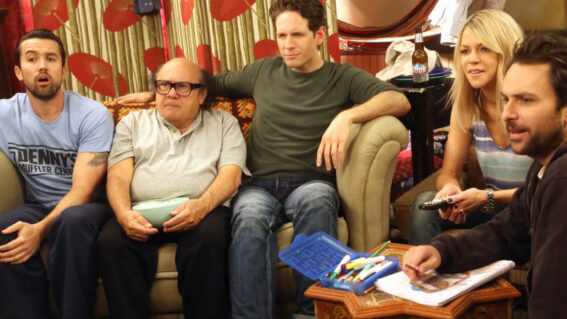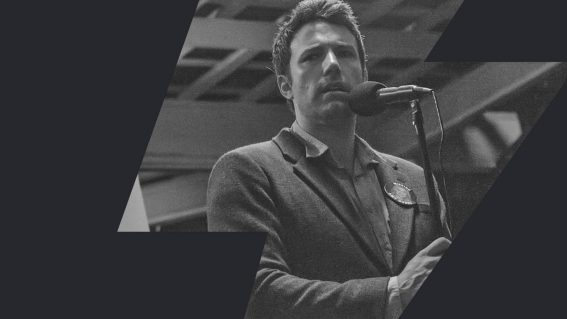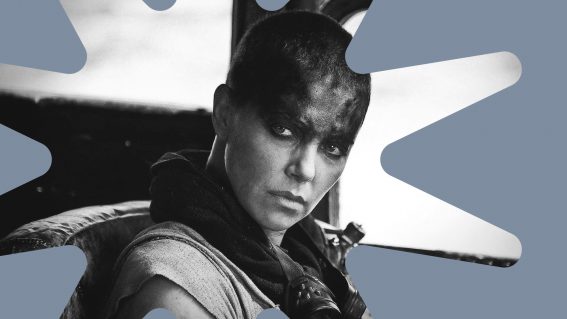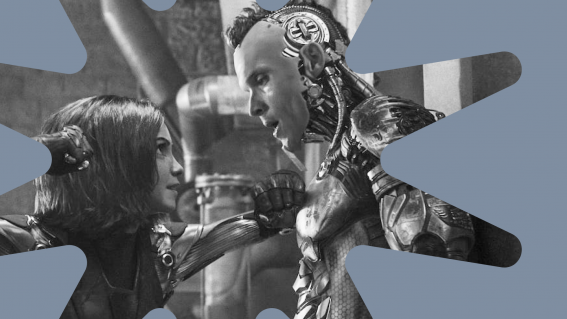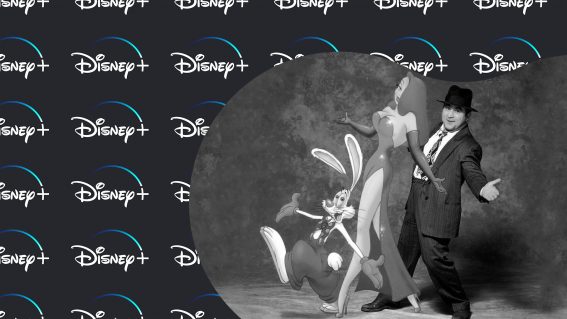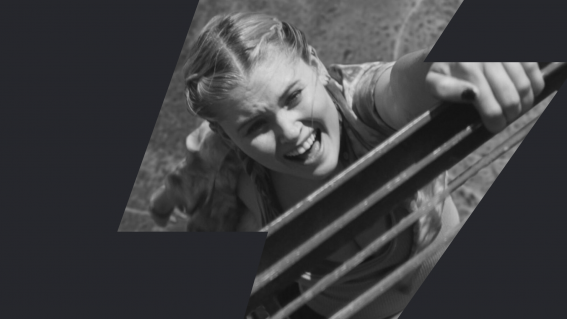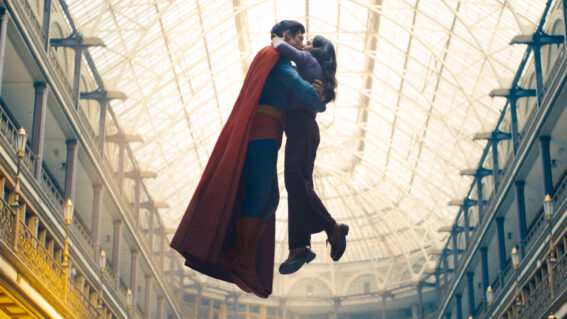Interview: Peace Officer
Sobering documentary Peace Officer won the SXSW Audience and Grand Jury Award, and now plays as part of the NZ International Film Festival. The film examines the rise of deaths at the hands of militarised US police, tracking former sheriff ‘Dub’ Lawrence as he investigates the controversial shooting and killing of his son-in-law by a SWAT […]
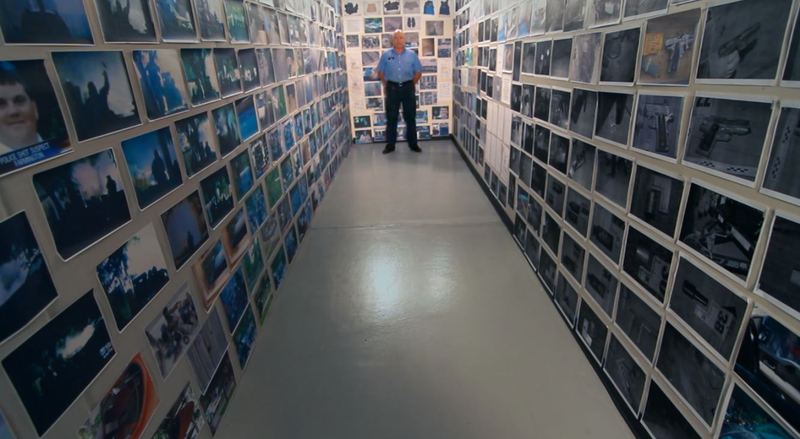
Sobering documentary Peace Officer won the SXSW Audience and Grand Jury Award, and now plays as part of the NZ International Film Festival. The film examines the rise of deaths at the hands of militarised US police, tracking former sheriff ‘Dub’ Lawrence as he investigates the controversial shooting and killing of his son-in-law by a SWAT team – the very same team he trained 30 years ago. Filmmakers Brad Barber and Scott Christopherson spoke to Flicks while in Auckland.
FLICKS: I guess, sadly, I was going to start by saying how timely your film is, but I suppose there’s been so much shit going on in the US for so many years that it would have been timely anytime it came out in the last decade just about, right?
SCOTT CHRISTOPHERSON: Right, it keeps happening. I think you could say that it’s maybe more timely because of Ferguson, I think Ferguson was certainly kind of the… I don’t know, is powder-keg the right word? It kind of started the whole national, broader discussion of the militarization of Police. So there’s that and then there’s like Eric Garner, which isn’t quite the same – definitely not the same as Ferguson – but still you find these connections with maybe overuse of force or this, kind us versus them mentality with Police versus citizens. So I guess in that case, hopefully it is. We’ve heard that a fair amount, as far as it being timely and we hope that, and I guess any film-maker would hope that, that their film is connecting with what’s socially going on in their community locally and nationally – even internationally – but of course our focus is on American issues.
It’s a good approach that you’ve taken, to hinge your film predominantly around one individual. It just gives it a different perspective than saying, “Hey look, here’s the stuff that you already know which is that all this military, surplus hardware is on the streets and people are using it,” where there’s constantly a new case, a new anonymous officer…
BRAD BARBER: That was very much by design. We love documentaries, we respond to narrative stories about people and I think access them better than if you just talk to a series of talking heads and experts about the problem that everyone agrees is a problem, but yeah, seeing Dub’s story specifically and seeing his journey, we felt like was a good way to go. We approached it more as story-tellers rather than kind of advocacy, policy wants. We ended up being drawn into what those bigger issues were but we didn’t really set out to make a policy film per se, it was about Dub and of course he ends up being sort of this spokesman for a lot of conflict that people are feeling.
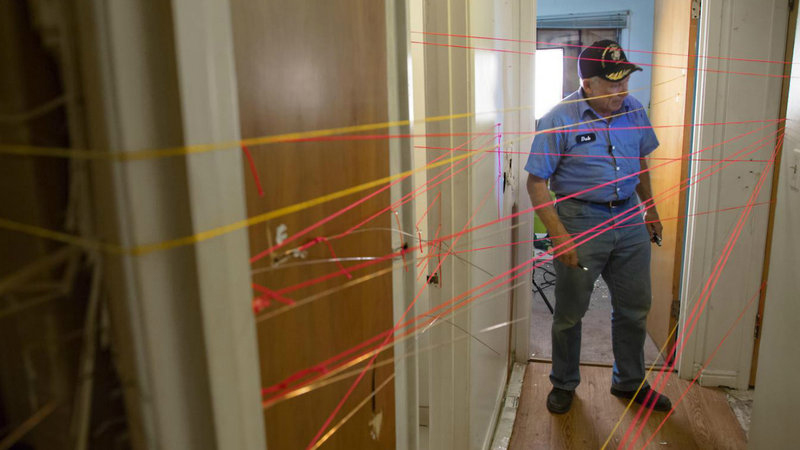
Did you identify him from afar and start to build it from around him personally?
CHRISTOPHERSON: Yeah, definitely that was the case. I met Dub at a softball game – I knew Dub’s son – and then Dub approached me and said, “Hey, I’ve got this case,” his son-in-law’s case, “will you teach me how to edit?” I was blown away by what he had and I ran the idea by Brad and we both decided, “Yeah, let’s do this. Let’s start shooting it and let’s build it around Dub.” We were always more fascinated by him as a character and, you know, personally those are the films that I’m drawn into, kind of like what Brad was saying, films that you can explore issues through the lens of a character who has interesting idiosyncrasies, who is imperfect maybe but you can appreciate going through a journey. So he definitely was the catalyst, we were just fascinated by him and who he was and his complex, cheery personality with all this stuff.
There are moments in the film where it’s almost like you sort of forget the severity of what he’s working on, and it’s almost like it’s his hobby for a second.
CHRISTOPHERSON: He might even describe it as that, maybe a hobby he feels very passionately about. It’s an unusual hobby but like an obsessive one that just swallows almost the majority of his time, so much of his energy and time. He has to do the sewer job, like the septic-tank job to make a living, but then he spends a ton of time on this.
That would be a great job to have your mind somewhere else though right?
CHRISTOPHERSON: With the septic tanks? [chuckles] It would be bad if that was his hobby right?

Without Dub, you’d just be sort recounting events, without a central character to follow through.
CHRISTOPHERSON: There’s maybe not a threat or a character that you can sympathize or empathize with, Dub provides a way to kind of – enjoy’s the wrong term, but a way that you can maybe more easily digest all of the stuff that’s going on. It’s so difficult and hard to digest. I think Dub makes for a more pleasurable journey to think about and watch this stuff. At the same, you see police officers in our film that kind of offer out their experience. Like SWAT team guys who raid homes and have seen their loved comrades die and I think for us, that was something we were really proud of in that we got some of these police officers to share their side of the story.
You’ve got Dub who is a police officer and I think that’s the only way you could even get into a story like this, someone who knows both worlds, they’ve kind of been a victim and they’ve also been on the law-enforcement side. But we also included these recent police officers who’ve been through it and saw their fellow police officer die. I think something that we were proud of is that we were able to give them a voice, and hopefully even-handedly let both sides speak. Let both citizens and officers who are involved in this, speak. Because the problem isn’t necessary officers, it’s more about this systemic thing, this policy thing that exists in America.
Did you meet with much skepticism in the film-making process from police forces? Are they paranoid about this issue being discussed and expect that it’s going to be a negative slant?
BARBER: Scott will be able to talk a lot more about that. Just from own part, I would say yeah, at least the ones that I met. They’re very skeptical of how they’re represented in the media and it seemed to me, I got the impression that this is a pretty rare thing that they were willing to talk to us, but Scott really is the one that made that happen.
CHRISTOPHERSON: Yeah, they were definitely skeptical. The ones that you see on screen, it was hard to get them to participate. It took taking them out to lunch, it took several months to go through. First you contact their Captain, then you contact the main Commander, I took him out to lunch and then I had to meet with all the police officers involved. So there was this kind of long process of persuasion. They’d been burned before right? They had been burned by all types of media, in the news – who choose to colour them in a certain way – and I think eventually we earned their trust.
I come from a family where my grandfather was in law enforcement, he was an FBI agent for 25 years and I’d had a deep respect for what law enforcement officers do, and I think that helped and made a difference. And, I’d like to think Brad and I are both sincere, genuine, honest people and I think they realize that and as we talked with them and interviewed them, I think they could tell that we didn’t have a big agenda, it wasn’t our goal to throw them under the bus, but rather we sincerely wanted to know what they thought and what it was like to kind of be in that situation when you raid a home or you put your life on the line essentially.

How is this systemic situation going to be addressed when those ranks are so closed and there is this inherent suspicion of an external view-point? How can you force a group of people who are insular to do something you want them to do?
CHRISTOPHERSON: Well, I’m going to channel my inner Dub here a little bit. Because I’ve heard him say something like this, “I think it helps a lot, hearing some of these critiques come from someone on the inside.” Dub is very much not, anti-police, anti-law enforcement, he is very pro-law enforcement, pro-police and our hope – and I know Dub’s hope – is that the film can serve as a starting point for training and improvement within the law enforcement community. And my opinion is it probably has to be on their own terms.
You’re right, they’re not going to say, “Oh, the major news networks are talking a lot about this, maybe we should improve.” Maybe there could be some but I think you’re right, they tend to close ranks but Dub always says, there are a lot of good police officers out there that are starting out and seeing how different the culture is than what they thought it would be, and are quietly hoping for reform and would immediately get in line with reform. So, I feel sort of optimistic that that could happen, but I think it would have to come from within their own kind of culture, there own training, to the extent they want us there, great, but I think Dub kind of coming from that world is going to help.
BARBER: You even see policy makers in the recent past, President Obama limited the amount of military agreed equipment that are issued to polices forces, like local police forces. That’s a small thing to cap, but more recently there’s been different Acts in the United States – Congress and Senate. There’s a thing called the PRIDE Act which means certain police would be required to report officer involved shootings.
So, part of the problem is, we don’t have all of the data, on a broader systemic thing we don’t have all the data to know how to solve the problem and I think, to kind of tap into the insularity of police forces, I think it starts by just recognizing, “Okay, here’s what’s going on with some of these shootings and some of these issues, we need to know what that is before we can actually tackle a lot of the cultural problems that exist.”
So I think if you have both, if you have a film like this that can tap into police culture and victim culture and let them both speak and not rather than combat and fight against each other, it creates a kind of even-handed vehicle for discourse. That’s a start and in addition to these policies in US Congress and Senate, that can help know what the problem is.
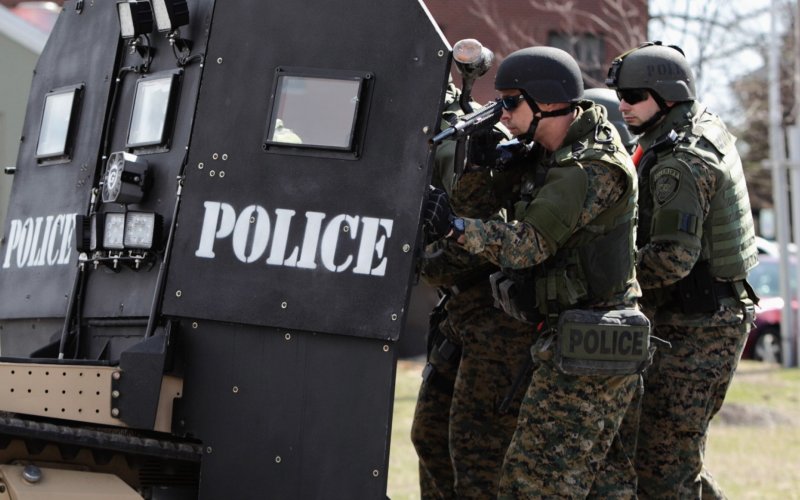
So, going from this really massive complicated issue and to broaden it even more, a hell of a lot of people in the United States die from guns. When thinking about police officers, have you thought about that broader role that weapons play in the US society?
CHRISTOPHERSON: America has a long history of guns, it’s in the Bill of Rights, right, and it’s always been a part of the culture. Certainly as we’ve made this film, I feel like it made me think about, “Well okay, why are guns so pervasive? How does that effect American culture?” You look at other cultures like New Zealand. I’ve spent some time in Scotland, and we screened the film in Canada where they have much stricter gun laws and it’s harder to access guns, and in many cases police don’t even have guns, they might have tazers, they might have other weapons but guns are harder to come by. And there’s something to be said about learning from those cultures.
I think there is a huge problem in America with school shootings, I mean they just keep happening. School shootings or mass shootings, it’s definitely a problem that needs to be addressed. I don’t have the remedy or the answer to how to solve it, I think the film like ours at least creates a discourse or a way to start thinking about that in a specific context.
BARBER: This is putting a spotlight on the problem from the law enforcement perspective. One of the detectives in the film even mentions that they feel because there are so many guns in America, or at least with the people they’re dealing with, they have to have more fire-power, more protection and it’s almost like this little mini arms race. So that maybe is a way that it ties in as well because it’s kind of a complication from the law enforcement side and I guess there’s a little bit of a chicken and a egg approach to that arms race. Which one do you try to stop first?
As well as the increased militarization being driven by the need to out-gun criminals is there an element of fetishization over the equipment to start with?
CHRISTOPHERSON: Yeah, that cultural mind-set of adrenaline in police forces or wanting to have a better gun – or use those bigger guns – exists.
BARBER: Remember that training video they showed us? It showed SWAT guys doing these operations in tanks and military gear and they had this like thrasher music playing, like you’d see in a video game or something. Like a music video.





